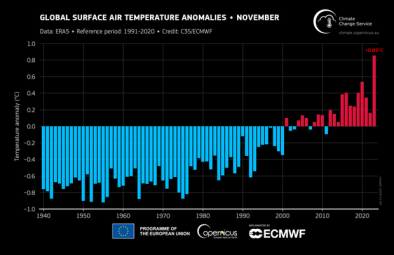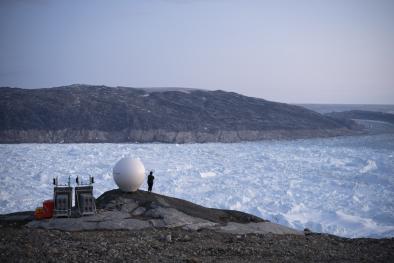Science Source
Taking the Measure of the Greenhouse Effect
- Summarizes the science of the greenhouse effect
- States it has been understood since the 19th century that some gases absorb infrared radiation (IR) that is emitted by the planet, slowing the rate at which the planet can cool and warming the surface
- States that the size of the greenhouse effect is often estimated as being the difference between the actual global surface temperature and the temperature the planet would be without any atmospheric absorption, but with exactly the same planetary albedo, around 33°C
- Explains that different substances absorb different frequencies of IR, and the different parts of the planet differ wildly in how much IR is being emitted (based as it is on surface temperature) and how much cloud and water vapor there is at that location (carbon dioxide is very well mixed)
- NASA GISS modeling of radiative transfer through the global atmosphere finds water vapor is the dominant substance — responsible for about 50% of the absorption, with clouds responsible for about 25% — and CO2 responsible for 20% of the effect; the remainder is made up with the other minor greenhouse gases, ozone and methane for instance, and a small amount from particles in the air (dust and other "aerosols")
- Notes that calculating the impact of change in CO2 is different than for water vapor and clouds because the later two depend on temperatures and atmospheric circulation in a way that CO2 does not
- States that as temperature rises, the maximum sustainable water vapor concentration increases by about 7% per degree Celsius
- States that the total greenhouse effect after a change in CO2 needs to account for the consequent changes in the other components as well
- Concludes that, despite being a trace gas, there is nothing trivial about the importance of CO2 for today, nor its role in shaping climate change in the future
Related Content
Headline

Feb 15, 2024 | Climate Nexus Hot News
Amazon Could Reach Tipping Point By Midcentury
Headline

Jan 16, 2024 | Climate Nexus Hot News
2023 Smashes Hottest Year Record
Headline

Dec 7, 2023 | Climate Nexus Hot News
It’s Official - 2023 Is World's The Hottest Year On Record
Headline

Dec 7, 2023 | Climate Nexus Hot News
Earth Veering Closer To Dangerous Tipping Points


